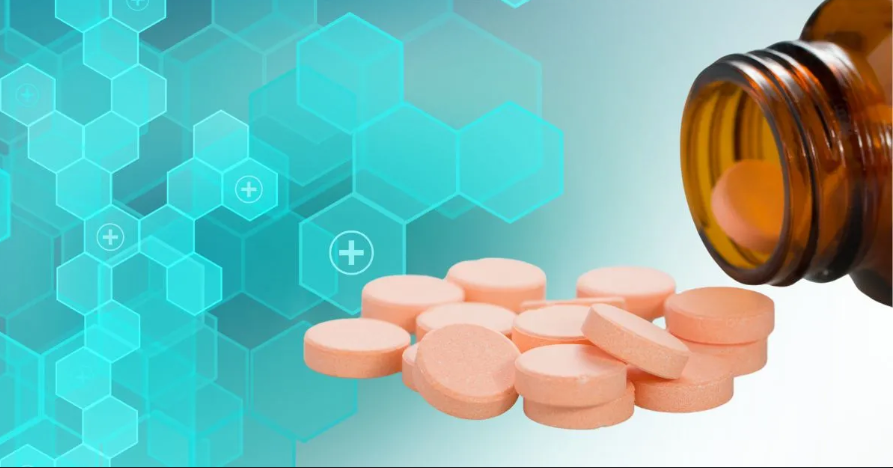Introduction
Are you feeling unusually drained while taking Naltrexone 4.50mg Extremely Tired? You’re not alone. Many individuals on this medication experience unexpected fatigue, and it can be frustrating to navigate through the haze of tiredness while trying to reclaim your health. Whether you’re battling alcohol dependence or managing pain, understanding how naltrexone interacts with your body is crucial. Let’s explore what naltrexone is, why it might leave you feeling exhausted, and discover effective strategies to combat that overwhelming sense of fatigue. Your journey towards wellness doesn’t have to feel like an uphill battle; let’s dive in together!
What is Naltrexone 4.50mg?
Naltrexone 4.50mg Extremely Tired is a medication primarily used to support individuals recovering from alcohol and opioid dependence. It belongs to the class of drugs known as opioid antagonists, which means it blocks the effects of opioids in the brain.
By reducing cravings and withdrawal symptoms, naltrexone helps people maintain sobriety. This can be especially beneficial during early recovery when urges may be strong.
It’s available in various forms, including oral tablets and injectable solutions. The 4.50mg dosage is often prescribed for those who need a tailored approach to their treatment plan.
While effective for many, it’s essential to use naltrexone under medical supervision due to potential side effects and interactions with other medications. Understanding how this drug works can help patients stay informed on what they might experience while taking it.
The Common Side Effects of Naltrexone
Naltrexone 4.50mg Extremely Tired is generally well-tolerated, but like any medication, it can come with side effects. Some users report experiencing nausea, dizziness, or headaches shortly after starting treatment. These symptoms often diminish as the body adjusts to the drug.
Another common issue includes gastrointestinal disturbances. Some may experience constipation or diarrhea, which can be uncomfortable and disruptive.
Additionally, changes in sleep patterns are not uncommon. Insomnia or vivid dreams might plague some individuals during their treatment period.
It’s crucial for patients to monitor these reactions closely. If side effects become bothersome or persistent, reaching out to a healthcare professional is essential for proper guidance and support. Adjusting dosage or considering alternative medications may provide relief while maintaining progress in recovery efforts.
Understanding Fatigue and its Causes
Fatigue is more than just feeling tired. It can be a complex experience that affects both the body and mind. Many factors contribute to fatigue, ranging from lifestyle choices to underlying health conditions.
Stress is a significant player in this equation. When the body faces constant pressure, it drains energy levels quickly. Sleep disruption also plays a crucial role; poor sleep hygiene or insomnia can leave anyone feeling exhausted.
Nutritional deficiencies are another common cause of fatigue. Not getting enough vitamins or minerals can lead to low energy levels, making daily tasks feel daunting.
Medical issues like anemia or thyroid disorders might also be at fault for persistent tiredness. These conditions often require medical attention for proper management.
Recognizing these causes helps individuals address their fatigue effectively and leads to better overall well-being as they navigate their day-to-day lives.
How Naltrexone Can Cause Extreme Tiredness
Naltrexone is primarily used to help individuals manage alcohol and opioid dependence. However, it can have various side effects, with extreme tiredness being one of them.
When taking Naltrexone 4.50mg Extremely Tired, some users report feeling unusually fatigued. This fatigue may stem from the way the medication interacts with your brain’s receptors. By blocking certain opioids, it alters how your body perceives pleasure and reward.
Additionally, naltrexone might disrupt sleep patterns for some individuals. Poor sleep quality can lead to increased exhaustion during the day.
Moreover, if a person is adjusting to sobriety while on naltrexone, emotional stress could add to their feelings of tiredness. The combination of physical changes and emotional challenges makes fatigue quite common in these situations. Recognizing that this tiredness often correlates directly with medication usage is essential for anyone experiencing such symptoms.
Tips for Managing Extreme Tiredness while Taking Naltrexone
Managing extreme tiredness while on naltrexone can feel daunting, but small changes can make a significant difference.
Prioritize your sleep. Establishing a regular sleep schedule helps improve overall rest quality. Aim for seven to nine hours each night.
Stay hydrated throughout the day. Dehydration can amplify feelings of fatigue, so keep water close by and sip regularly.
Incorporate light exercise into your routine. A brisk walk or gentle stretching can boost energy levels and combat sluggishness without overwhelming you.
Mindful eating plays an essential role too. Focus on nutrient-dense foods like fruits, vegetables, lean proteins, and whole grains to sustain energy throughout the day.
Consider breaking tasks into smaller chunks to avoid feeling overwhelmed. Tackling one thing at a time allows for better focus without draining your energy reserves too quickly.
Don’t hesitate to talk with your healthcare provider about any concerns regarding medication side effects; they may offer valuable insights tailored just for you.
Alternative Treatments for Alcohol Addiction
Exploring alternative treatments for alcohol addiction can open new paths to recovery. Many individuals seek options outside traditional therapies, looking for a more holistic approach.
One popular method is mindfulness meditation. It encourages self-awareness and emotional regulation, helping individuals manage cravings and triggers effectively.
Then there’s yoga therapy. This practice combines physical postures with breath control and meditation, promoting relaxation while reducing stress levels.
Another option includes nutritional counseling, focusing on a balanced diet to support overall health during recovery phases. Proper nutrition can significantly impact mood and energy levels.
Art therapy also offers an expressive outlet for emotions tied to addiction. Engaging in creative activities allows patients to explore their feelings without judgment.
These alternatives provide diverse methods tailored to individual needs, emphasizing that recovery is not one-size-fits-all but rather a personalized journey toward healing.
Conclusion
Naltrexone 4.50mg Extremely Tired is a powerful tool for treating alcohol and opioid addiction, but it can come with side effects that affect daily life. Extreme tiredness is one of those potential issues that some users may face while on this medication. Understanding the reasons behind this fatigue can help you manage it more effectively.
By recognizing how naltrexone interacts with your body, you can take proactive steps to alleviate feelings of exhaustion. Simple lifestyle adjustments such as maintaining a balanced diet, ensuring proper hydration, getting adequate rest, and engaging in light physical activity can make a significant difference.
If extreme tiredness persists or impacts your quality of life significantly, discussing alternative treatments for addiction with your healthcare provider may be beneficial. There are various options available that might suit your needs better without causing overwhelming fatigue.
Navigating the challenges associated with naltrexone does not need to be an isolating experience; support from medical professionals and peer groups can offer valuable insight and encouragement along the way. Staying informed about what you’re experiencing allows you to advocate for yourself effectively during treatment.

